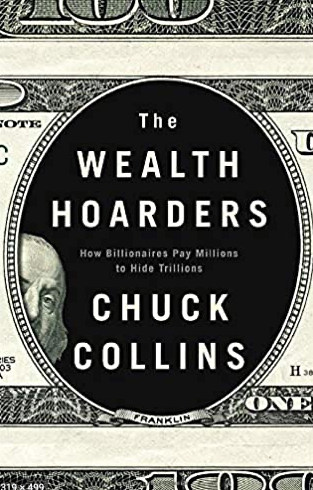Chuck Collins considers the systemic risks of “family offices,” those in-house wealth management systems that hit the headlines with the the collapse of Archegos Capital.

(Jo Johnston from Pixabay)
By Chuck Collins
Inequality.org
 Ultra-high-net-worth families — those with $250 million up to the billionaire class — form family offices to bring wealth management services “in house.” Key to their purpose is capital preservation and fostering inherited wealth dynasties.
Ultra-high-net-worth families — those with $250 million up to the billionaire class — form family offices to bring wealth management services “in house.” Key to their purpose is capital preservation and fostering inherited wealth dynasties.
They are major utilizers of dynasty trusts to sequester wealth and avoid estate taxes. In this way, family offices serve to entrench multi-generational wealth inequality. Family offices are an unregulated corner of the financial marketplace with an estimated $6 to $7 trillion in assets under management (compared to $3.4 trillion in global hedge funds).
 As the concentration of wealth globally has increased, so has the number of family offices. There are now an estimated 7,000 to 10,000 family offices globally, most having formed in the last 15 years. The U.S. family office sector formed the Private Investor Coalition to successfully lobby against financial oversight provisions in the 2010 Dodd- Frank financial reform legislation. As a result, after 2011, dozens of hedge funds converted to family office structures.
As the concentration of wealth globally has increased, so has the number of family offices. There are now an estimated 7,000 to 10,000 family offices globally, most having formed in the last 15 years. The U.S. family office sector formed the Private Investor Coalition to successfully lobby against financial oversight provisions in the 2010 Dodd- Frank financial reform legislation. As a result, after 2011, dozens of hedge funds converted to family office structures.
Proponents of family offices believe light oversight is justified because these offices only serve private families. As they are not offering services to multiple clients, the thinking goes, family offices should not be subject to scrutiny.
However, the collapse of Archegos Capital revealed that family offices can contribute to systemic risk because of their size, secrecy and growing interest in speculative investments. Together they manage trillions in unregulated financial capital, some invested in the next generation of exotic financial instruments and profit-making schemes.
Family offices should be required to register with the Securities and Exchange Commission (SEC) and publicly report certain option and stock positions on a quarterly basis. They should be required to make 13F disclosures on a quarterly basis to declare all portfolio positions, as hedge funds must do.
Archegos is an early warning sign about how new speculative investment tools — the equivalent of credit default swaps during the 2008 economic meltdown — will arrive on the scene. Don’t be surprised when the delivery systems are capital supplied by family offices.
For more information, I explore the role of family offices in the larger “wealth defense industry” in my new book, The Wealth Hoarders: How Billionaires Pay Millions to Hide Trillions (Polity Books).
And Kalena Thomhave and I make the case for increased scrutiny and oversight of family offices in our new briefing paper, “Family Offices: A Vestige of the Shadow Financial System.”
Chuck Collins directs the Program on Inequality and the Common Good at the Institute for Policy Studies, where he also co-edits Inequality.org.
This article is from Inequality.org.
The views expressed are solely those of the author and may or may not reflect those of Consortium News.

Tax them out of existence; if they object, arrest them like common thieves.
What is their positioning in the global derivatives market?